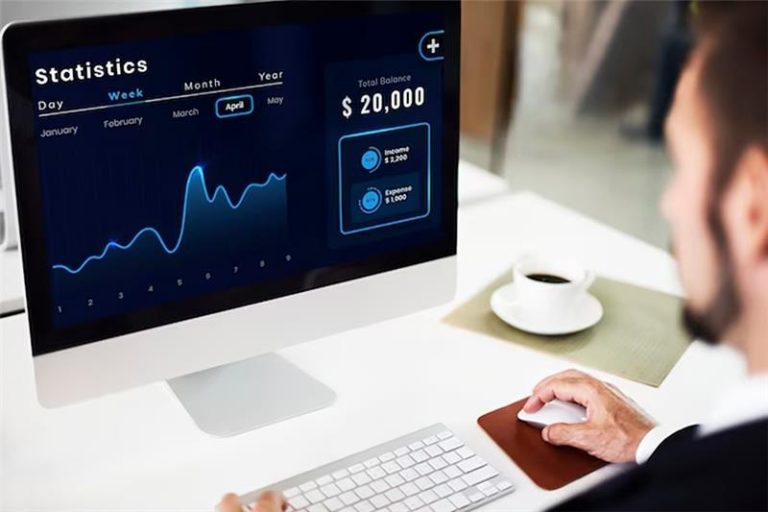Maximizing Business Valuation Through Strategic Tech Investments
In today’s fast-paced business environment, technology is no longer just a support function—it is a key driver of your business valuation. The right tech investments can enhance efficiency, mitigate risk, and ultimately make a business more attractive to potential buyers. Industry experts weighed in on how companies can leverage technology to boost their valuation and maximize their exit strategy.
The Direct Link Between Tech and Business Valuation
One of the most compelling takeaways from the discussion was the undeniable link between an organization’s technology stack and its business valuation. Investors and potential buyers seek out companies that not only have strong financials but also streamlined operations driven by scalable and well-integrated technology solutions.
According to John Larson, Principal Consultant at TechServe Alliance M&A Marketplace, “Technology is definitely a piece of the puzzle. A potential buyer is going to look at that tech stack from multiple viewpoints. They want to understand the foundation of that technology. If you have an outdated tech stack, that’s really going to impact your valuation.”
Lauren Jones, Founder of Leap Advisory Partners, reinforced this point with a striking analogy: “It’s kind of like good running shoes, right? Inevitably, your running shoes will wear out, and you need new running shoes. Your technology is no different.”
By implementing strategic technology investments, businesses can increase efficiency, improve customer experiences, and maintain better data security—all of which contribute to a higher valuation.
Choosing the Right Technology Investments
Not all technology is created equal. While it may be tempting to invest in the latest tools and software, strategic alignment is key. Businesses should assess their needs and invest in solutions that not only solve immediate problems but also add long-term value.
Laura Bumby, Senior Strategy Manager at Bullhorn, emphasized the importance of a forward-thinking approach: “We are seeing buyers really seeking scalable platforms that are going to enable expansion over time. If you have an outdated tech stack, that’s going to impact your valuation, but if you have a scalable tech stack, what does that do? That enables you to expand.”
Companies should focus on solutions that integrate seamlessly with existing systems, provide automation to reduce manual work, and offer analytics to support data-driven decision-making.
Enhancing Operational Efficiency with Technology
Operational efficiency plays a critical role in company valuation. Businesses that run smoothly, with minimal bottlenecks and redundancies, tend to have higher multipliers when it comes to valuation.
Larson explained, “What I find is that they’re not using what they already have. It’s disjointed. They haven’t even arrived at the efficiency of the investment that they’ve already made, so they’re not receiving the appropriate ROI in the first place.”
Jones expanded on this by noting, “There is this misnomer that because people aren’t using it or because it feels like it’s not working, it just needs to be changed out. That’s an expensive and disruptive decision. More often than not, businesses already have what they need; they just don’t know how to use it.”
Implementing AI-driven analytics, cloud-based solutions, and integrated CRM platforms can streamline operations, reduce errors, and provide better insights into company performance. These improvements make a business more attractive to investors and potential buyers.
Tech-Enabled Risk Mitigation
Risk is always a concern for investors. Whether it’s cybersecurity threats, data management challenges, or compliance risks, buyers want to see that a company has strong safeguards in place. Investing in technology that enhances security and ensures compliance can significantly impact a company’s valuation.
Larson stated, “Three years ago, cybersecurity was at the bottom of the list. Now it’s at the top. You can expect cyber to be an early part of the conversation. Buyers are going to take a close look at how secure your systems are, how you protect your data, and what your policies are.”
Jones also highlighted AI-related risks, explaining, “You need to have an AI policy. If you don’t, reach out to me. We have a standard one that we leverage. Many AI tools are still the wild, wild west, and businesses need to be careful with PII and discrimination risks.”
Tech investments in this area should include robust cybersecurity measures, data encryption, and regulatory compliance tools. Companies that proactively manage risk are in a better position to negotiate higher valuations and attract quality buyers.
The Buyer’s Perspective: What Investors Look For
Investors and buyers don’t just look at revenue and profit margins; they assess the overall health of the business. A well-integrated tech stack demonstrates foresight, scalability, and operational efficiency—three factors that directly contribute to a higher multiplier.
Jones emphasized, “Buyers are looking for agility. Agility comes when you have adoption. Adoption comes when you have a plan. Adoption also comes and a plan comes when you understand who you are. All of these things are interlinked.”
To maximize valuation, businesses should document their tech strategy, show clear ROI from past investments, and demonstrate how technology has contributed to growth and stability.
Final Thoughts: Positioning Your Business for Success
The key takeaway from industry leaders is that technology isn’t just an operational tool—it’s a strategic asset that directly impacts valuation. From automation and efficiency to risk mitigation and scalability, the right tech investments can make a company more attractive to buyers and investors alike.
As Jones aptly put it, “If you’re not investing in technology, you’re already falling behind. The companies that take tech seriously are the ones that will command the highest valuations.”
By making smart technology investments, companies can position themselves for long-term success and achieve the best possible outcome when the time comes to sell or seek investment.












